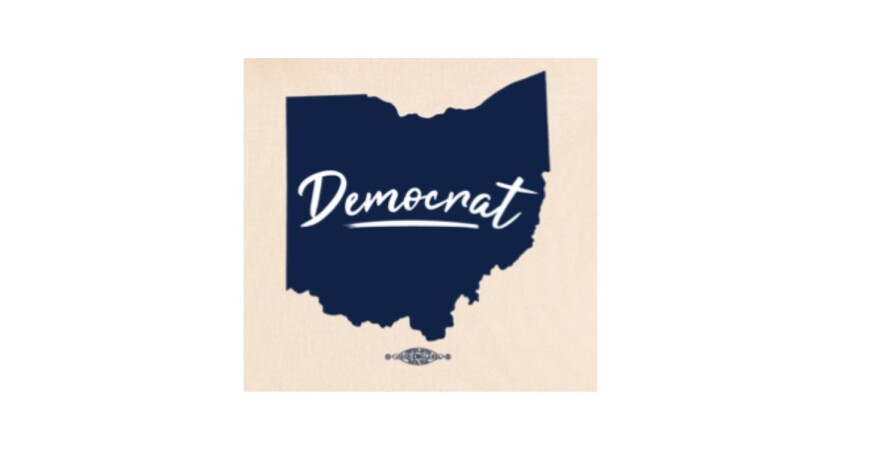It’s been nearly a week since the 11th Congressional district Democratic primary when Shontel Brown secured a win over Nina Turner in a tight contest that turned ugly toward the end. How will that impact the party going forward? Ohio’s top elected Democrat sees a bright future ahead.
Senator Sherrod Brown talked with us about the 11th district race and what he’s been doing to help Democrats in the state.
Sherrod Brown: It was unfortunate that the race became a nationalized race...so that one group of people came in against another group of people and they just escalated their spending. That too often happens in American politics. But both candidates are well known locally. Many of them, including Jeff Johnson and Shirley Smith and others, have held elective office and have been good public servants. I just think that once, I don't even know who came first, once somebody comes in with big money and the national players see this as their chance, that was unfortunate. But in the end, the voters made the decision based on their views of local candidates and it was a pretty close race and it ended up being between the only two that raised a ton of money.
Sarah Taylor: Right. State Rep. Stephanie Howse (D-Cleveland) said that there was an anyone but Turner mindset in Washington because she would upset the status quo. Do you think that's true?
Sherrod Brown: No, I think there were plenty of people in Washington that were for Nina, and there were plenty of people in Washington that were for Shontel. And there were some in Washington that supported other candidates...there was a lot of money as a result. I think that both candidates raised a lot of national money, some of it online, some of it in groups. It ended up being a two person race because of that.
Sarah Taylor: It seems to me that you've taken a bit of a more active role in state politics. Correct me if I'm wrong, but Matthew Keyes, who's handling party communications, I think he used to work for you and you endorsed Elizabeth Walters, who took over as state party chair. What are you doing to help the party be as successful as you've been in the state?
Sherrod Brown: What I've been doing the last three years is helping to build a farm system within the Democratic Party, and that is we've done training of new candidates. I have a canary candidate program where we endorse and do some training and do some fundraising and some media with dozens and dozens of local candidates. Some in nonpartisan races. Some in school boards. Also cities, counties. There's a group called Lead Ohio that does specifically does good training for candidates.
We're going to build a farm system in Ohio. Because we've been unsuccessful at the state level, it's made it a little harder to do candidate recruitment, but I think...we've turned the corner on that. And I think we're going to see new young, vibrant candidates. And keep in mind that Democrats are the party of young people, young voters overwhelmingly are Democrats. It's the older, more conservative voters that vote Republican, and so we have a real future in this state. We keep young people in the state, activists, wanting to live in Akron and Kent, in Cleveland and Ravenna and Mansfield and Columbus. We're going to see a surge and we're going to start winning more races every election.
Sarah Taylor: Well, I read some comments from Cleveland Councilman Basheer Jones, who said it seems the Democratic Party is not as good at working together as the Republican Party. And Stephanie Howse said she has yet to be in a space where every elected Democrat here in our Congressional District has been invited to come collectively together and just talk. She also said Democrats have to create a space for healing and focus on working together after this congressional race. What do you have to say about that?
Sherrod Brown: I think it's up to candidates, winning and losing candidates to reach out to each other, first of all. Democrats, the old Will Rogers line, ‘I don't belong to an organized political party, I'm a Democrat,’ possibly holds true. I mean there are more of us. There are always more Democrats than Republicans. Look at the, the Republican Party's been taken over by a former discredited, if you will, racist misogynist president, who has clearly broken a lot of laws in his life. So...I don't think when you contrast us with them that you want to be them.
Sarah Taylor: Do you think that there needs to be more conversation among Democrats?
Sherrod Brown: Of course we should always have more conversation, but I don't think we have them in the media. I think we have them with each other, and I think we have a very good state chair now. She is open. I'm always open to discussion with people. I'm approachable. She's approachable. I work harder at party building, I don't self congratulate myself, but I've worked harder on party building than almost any member of the Senate, and I will continue to. My state needs it, my party needs it. I think it's good for Ohio to have a stronger two-party system.









